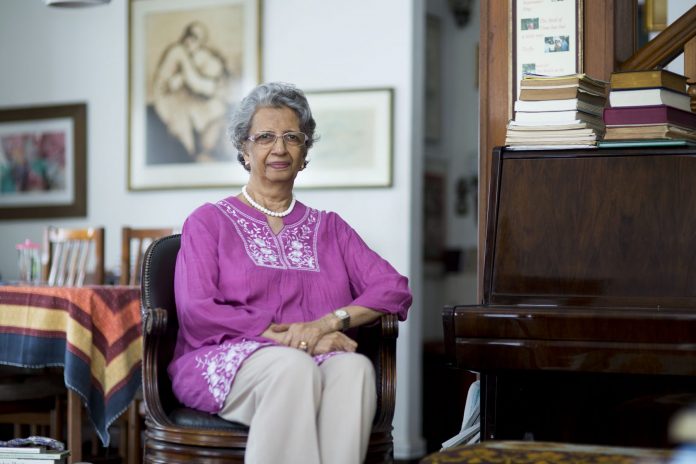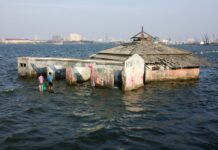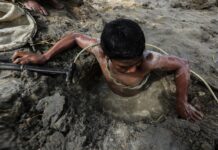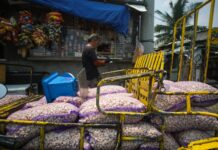One woman’s legacy to help disabled children in Singapore
Text Khong Swee Lin
The aftermath of the second world war brought about a period of rebuilding and restoration in Singapore, coupled with a growing sentiment for change. Although challenged by instances of conflict and poverty, a gradual rise in standards of living led to a penchant for modernity in outlook, lifestyle and even attire. Along the way, the island continued to face issues, in particular, public health issues of tuberculosis and poliomyelitis.
In 1953, a then 16-year-old Leaena Chelliah concluded her visit to a polio-stricken child at Singapore’s St Andrew’s Orthopaedic Hospital with her church group. That trip would mark a turning point in her life, as the child flung his arms around her and begged her not to leave. “Tell me more stories,” he cried. “You can’t leave!” Leaena never left.
Role Models in Her Early Life
Born to the Reverend Dr. D D Chelliah, the first Asian Archdeacon of the Anglican Diocese of Singapore & Malaya (1958–1966), and Mrs Rosalind Chelliah, Leaena’s parents led exemplary lives.
A humanitarian, her father foresaw a time when Singapore’s aged would need shelter and care, and together with two other pastors he began a project in 1958 that would become the St. John’s Home for Elderly Persons.
Both husband and wife were instrumental in ensuring that their children, including their youngest daughter Leaena, would grow up aware of the need to assist those who lived in poverty and hardship, a factor that was to determine her field of study and choice of career.
The University of Birmingham was Leaena’s port of call for a Degree in Social Science, specialising in social studies. Her practical work placements dealt with children and young persons with disabilities. After her return from the UK, she became the Assistant Director of the Department of Social Welfare.
In 1965, as her husband, Dr John Tambyah and her strongly believed that their children should be brought up by themselves, she stopped work when she was expecting her son and began helping out with voluntary organisations.
Catalyst for Change
In 1967, the sudden pullout of British forces from Singapore created a gap in volunteer work hitherto excellently performed by the wives of British servicemen. The Asian Women’s Welfare Association (AWWA) stepped into the breach. Founder Mrs. Shakuntala Bhatia, wife of the then Indian High Commissioner, and Mrs Vimala Kulasekaram roped in Leaena in 1972.
But who, or what was the catalyst for Leaena’s accomplishments in the world of the multiply-handicapped? It was 1979, the International Year of the Child. Leaena met a mother with her multiply-disabled son, who was asked to leave a reception class as her son was coldly considered “ineducable”. Yet, his mother never gave up hope for her child. She dressed him well, spoke, laughed and joked with him.
Leaena realised soon after, that although specific disabilities were well-catered for, no single institution catered to multiple disabilities. Deciding to do something for this group of children, she approached almoners of the Paediatric Unit at Outram Road General Hospital (as it was then known) for a list of children suitable for her project.
AWWA volunteers started it off as a playgroup in St Ignatius Church who offered their facility without strings, eventually purchasing a building at Norris Road to carry on their work.
Upon joint study with the National Council of Social Services, AWWA established that over 100 physically disabled students were attending mainstream schools. However, they weren’t doing well as their parents could afford neither time nor money for therapy. So, based on the idea of “mobile clinics” equipped with medical equipment that once plied Singapore’s rural villages and outlying districts combating tuberculosis, vans fitted with physiotherapy equipment plied the country to reach disabled children. Until today, these vans run on.
Bright Spark Jovin Tan
Jovin Tan’s success story has everything to do with Leaena Tambyah. The inspiring Paralympian, who is headed for Rio 2016, was born with cerebral palsy but is today a national sailor who also works with the Chapman Consulting Group.
Jovin, who is a recipient of the Singapore Youth Award in 2012, credits his employers as being supportive of their disabled employees who are also sportsmen, as he frequently has to train for and attend competitions overseas.
To Jovin, sailing has given him confidence, discipline and strength, both physical and mental, to take on the rigours of daily life.
For Leaena, Jovin is very special as he had in a sense been under her wings. Speaking to ASIAN Geographic, he said to us simply, “I’ve known her since the age of two”. The 30-year-old is a fine example of how a child with special needs can be successfully integrated into a mainstream educational system.
Starting with his enrollment in the playgroup, Jovin continued under Leaena’s pioneering TEACH ME Programme (Therapy and Educational Assistance for Children in Mainstream Education), a project that enables special needs students to compete on an equal level with able-bodied students.
Besides Jovin, quadriplegic Bay Meng Chien was also a participant and obtained an internship with UBS. Subsequently he was hired as full-time staff over other able-bodied candidates. Paralympian swimmers Theresa Goh (congenital spinal bifida, Public Service Medal 2008) and Yip Pin Xiu (muscular dystrophy, Meritorious Service Medal 2008) were also TEACH ME children. The list goes on and on. Hundreds of capable disabled young adults are now leading fulfilling lives as a consequence of Leaena’s project.
Bold as a Lioness
Over 60 years onward, Leaena, now an indefatigable grandmother of three grandsons, still champions the cause of Singapore’s multiply disabled or “special needs” children, helping them attain dignity in their lives, achieve their maximum potential and to support their mothers, who have unflinchingly borne their burden with fortitude, as mothers have done for centuries. Her goal is to include the excluded – that is, to include the disabled in Singapore’s compulsory education scheme for children.
We are glad for Leaena’s boldness, whose name in Latin means “lioness”, for in her boldness, the unacceptable are accepted, and the excluded are included.
For more stories and photos, check out Asian Geographic Issue 118.











